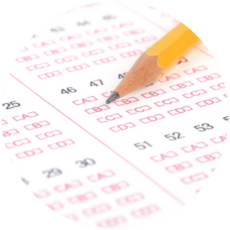
Advanced Placement Accommodations
Advanced Placement (AP) offers high school students the opportunity to take college-level courses while attending secondary school. AP courses are more rigorous than other high school offerings. The College Board, which administers the Advanced Placement (AP) program, provides a variety of accommodations for students with disabilities who take AP exams in Utah and across the United States. Students with an IEP, 504 Plan, or EL Plan are all eligible for accommodations/supports. Students should work with their school’s guidance counselor or disability services office prior to the exam to determine what accommodations are appropriate for them. They must submit documentation of their disability and a request for accommodations to the College Board by a specified date with supporting documentation.
Some of the most common accommodations for students with disabilities on AP exams include:
- Extended Time: Students with disabilities may be eligible for extended time on AP exams, allowing them extra time to complete the exam.
- Large Print: Students with visual impairments may be eligible for AP exams in a large print format.
- Braille: Students who are blind or have visual impairments may be eligible to take AP exams in Braille.
- Assistive Technology: Students with disabilities may use assistive technology such as screen readers or speech-to-text software to complete AP exams.
- Separate Testing Room: Students with disabilities may be eligible to take AP exams in a separate testing room to reduce distractions and provide a quieter environment.
Here are some helpful Advanced Placement (AP) links below:
- USBE on Advanced Placement Process
- CollegeBoard: Accommodations
- Advanced Placement Brochure for Parents
For more information about AP, visit the USBE Advanced Placement webpage, or contact Christy Schreck (christy.schreck@schools.utah.gov; 801-538-7935), USBE AP Specialist, or Jessica Wilhelm (801-538-7565), USBE Special Education Secondary Assessment Specialist.






